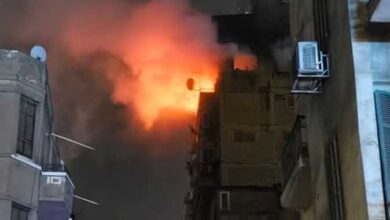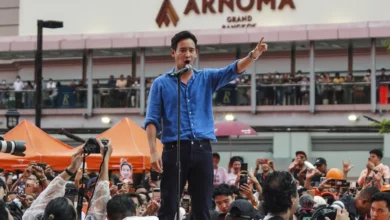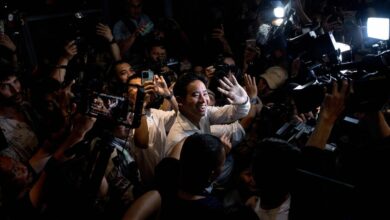“I’m here to build a new country for my children,” said Yasser Saleh, pointing to his young son standing next to him in line for today’s referendum on constitutional amendments. “I want a clean break with the past so the next generation can grow up in a new Egypt.”
The feeling is shared by many residents in Manial, who have gathered outside the Ali al-Jarem Primary School to cast their votes. In the long queues outside the polling station, conversations are dominated by one overriding feeling: Today’s referendum is a historic occasion, the first free election to take place in Egypt.
The turnout is diverse—young and old, men and women, Muslims and Copts—and most people have never participated in an election before. For many, the proposed amendments to the constitution are unsatisfactory.
Saleh, an employee at a local car assembly plant, explains that, more than anything, Egypt needs a decisive break with the previous regime—including its ruling party and constitution—in order to build a better future.
“I’m voting ‘no’ because I want the people to decide what their new constitution will look like, not a parliament that may include remnants of the former ruling party," he said.
The sentiment is echoed by many voters queued up behind him, who wave their fingers at bystanders, signaling that they should reject the amendments as well. The line has grown throughout the day as many people leave their day jobs to come vote.
“This is a beautiful sight, our voices are finally worth something,” said another first-time voter who has been waiting for over an hour to cast his ballot. “I left work to express my opposition to the amendments. I didn’t even know a school existed here, that’s how alienated I felt from previous elections.”
He explains that local residents have been convening for the past few nights—in coffee shops and in front of their buildings—to debate the merits and dangers of the proposed amendments. “My friends and I have been deliberating this matter for days. We are voting ‘no’ after careful evaluation of the arguments for both sides.”
A similar mood has prevailed across Cairo, where crowds have been gathering publicly to argue for or against the amendments. Egyptians with no previous interest in politics have felt deeply invested in a vote where the stakes matter and the outcome can be affected by popular pressure.
Manial is an old middle-class neighborhood with a historically low voter turnout. The Muslim Brotherhood headquarters, on the south side of the district, stands as one of the neighborhood’s few symbols of political activism.
Across the street, a local fish shop hoists a large banner reading “The Muslim Brotherhood votes ‘Yes’.” A cook at the shop said the banner was given to him by a member of the group and he raised it in support. Asked why, the young man expresses fears that further political instability may push the country into a permanent state of chaos.
“I don’t want Egypt to move backwards. I want to get on with my normal life and restore a sense of security.” He paused for a moment, with a look of confusion and said: “I will vote for whatever side will move this country forward, away from the current state of disorder.”




